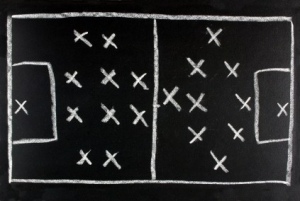I saw something today I never thought I would ever see. Check this out:

Yes, I bought some words. AdWords, that is. This is how Google makes a lot of money. Because I work in sales at The State News, I recognize the huge value in this product. AdWords isn’t intrusive – it simply shows up on the right side of the screen when you search for something on Google.
This is great for those people who love stats, but AdWords doesn’t allow for traditional branding. To me, it skips that whole creative branding process that I believe is essential for a company to connect with an audience. However, revenue for AdWords continues to increase while the rest of the advertising industry continues to suffer. Where will things be in a year? Five years? It’s a tough questions but nonetheless important for those getting into advertising, marketing and PR.
Anyway, I found the product useful. I did see some traffic increases, but not any comments from new bloggers. Although I would love to see a million people reading my blog every day, I would rather the blog be useful to those looking for advice. I think I have some work to do on targeting and it will take some more exploration on my part. There are many ways to make sure you are getting the most bang for your buck. Google does a really good job explaining everything here.
Here are my search terms:
 I thought about using “super fly” as a search term just to see what would happen, but I realized that there are probably many more ads that are willing to pay more per click than my offer of $0.15. Hey, I’m a broke college kid, don’t make fun of me.
I thought about using “super fly” as a search term just to see what would happen, but I realized that there are probably many more ads that are willing to pay more per click than my offer of $0.15. Hey, I’m a broke college kid, don’t make fun of me.
In case you can’t see, here’s my ad. Now I know how my clients feel when they place their first ad in our paper.

Filed under: New Media Drivers License, Professional Development, Social Media, adwords, blog, google, personal branding, seo, stats















Recent Comments